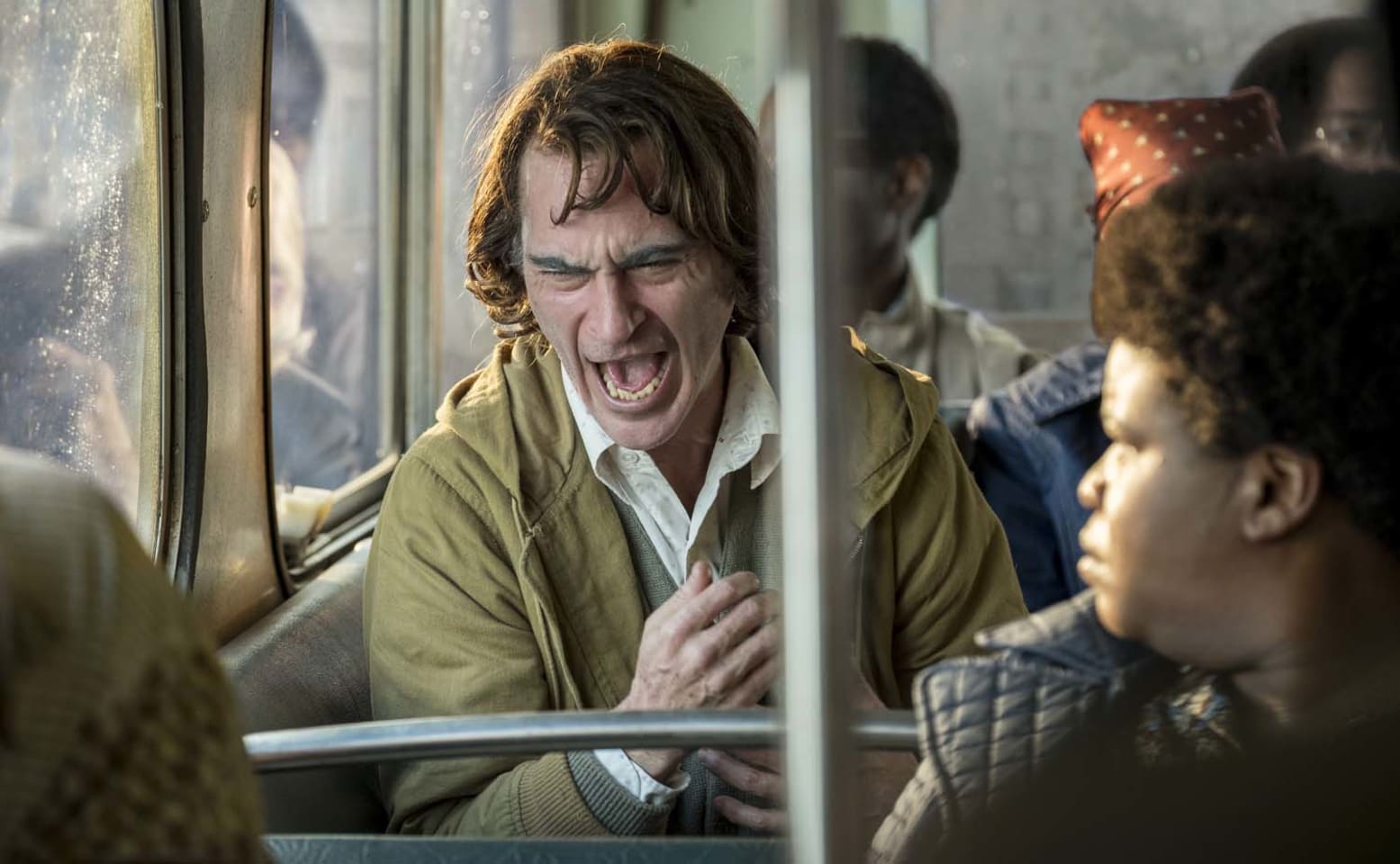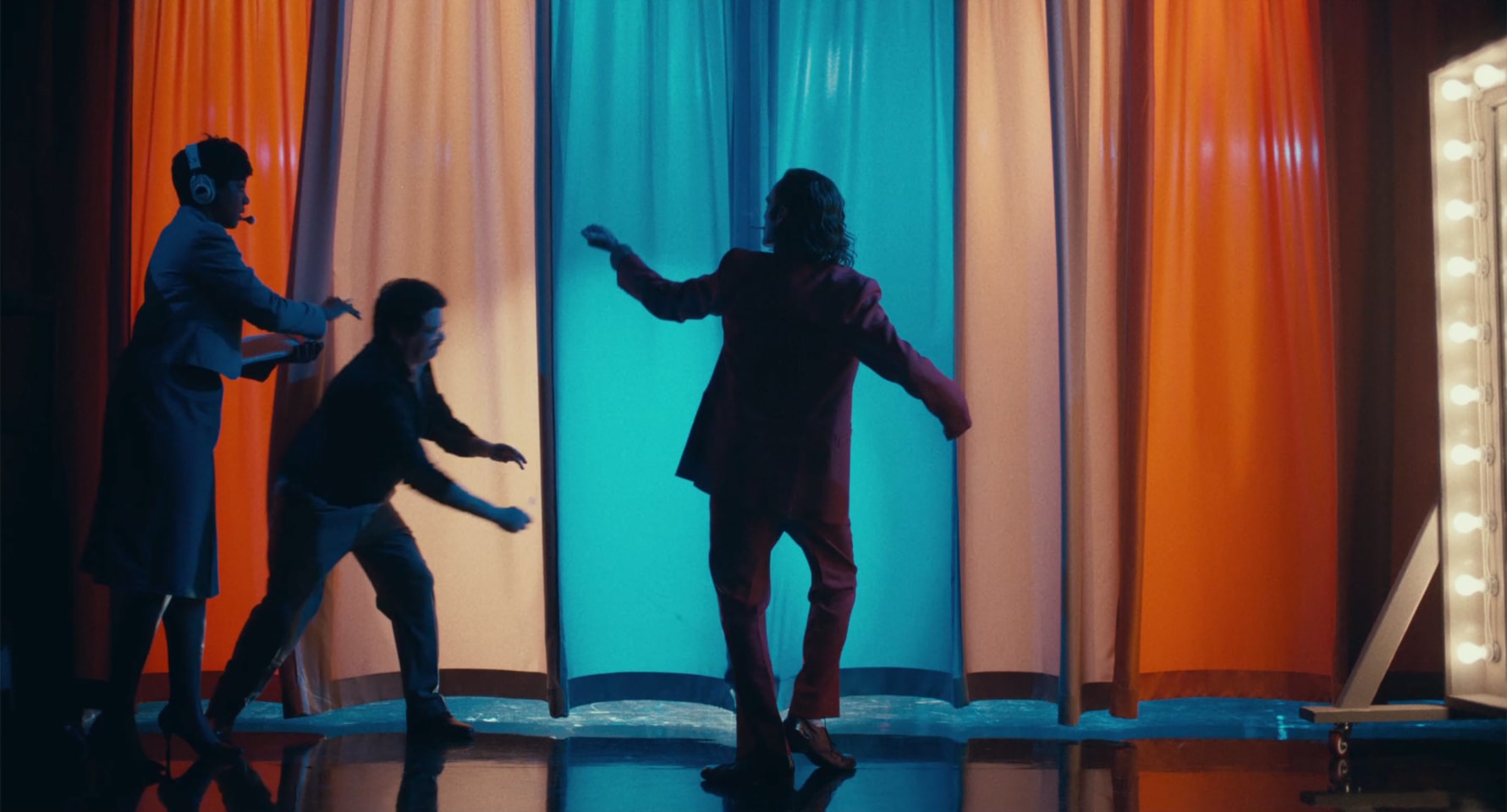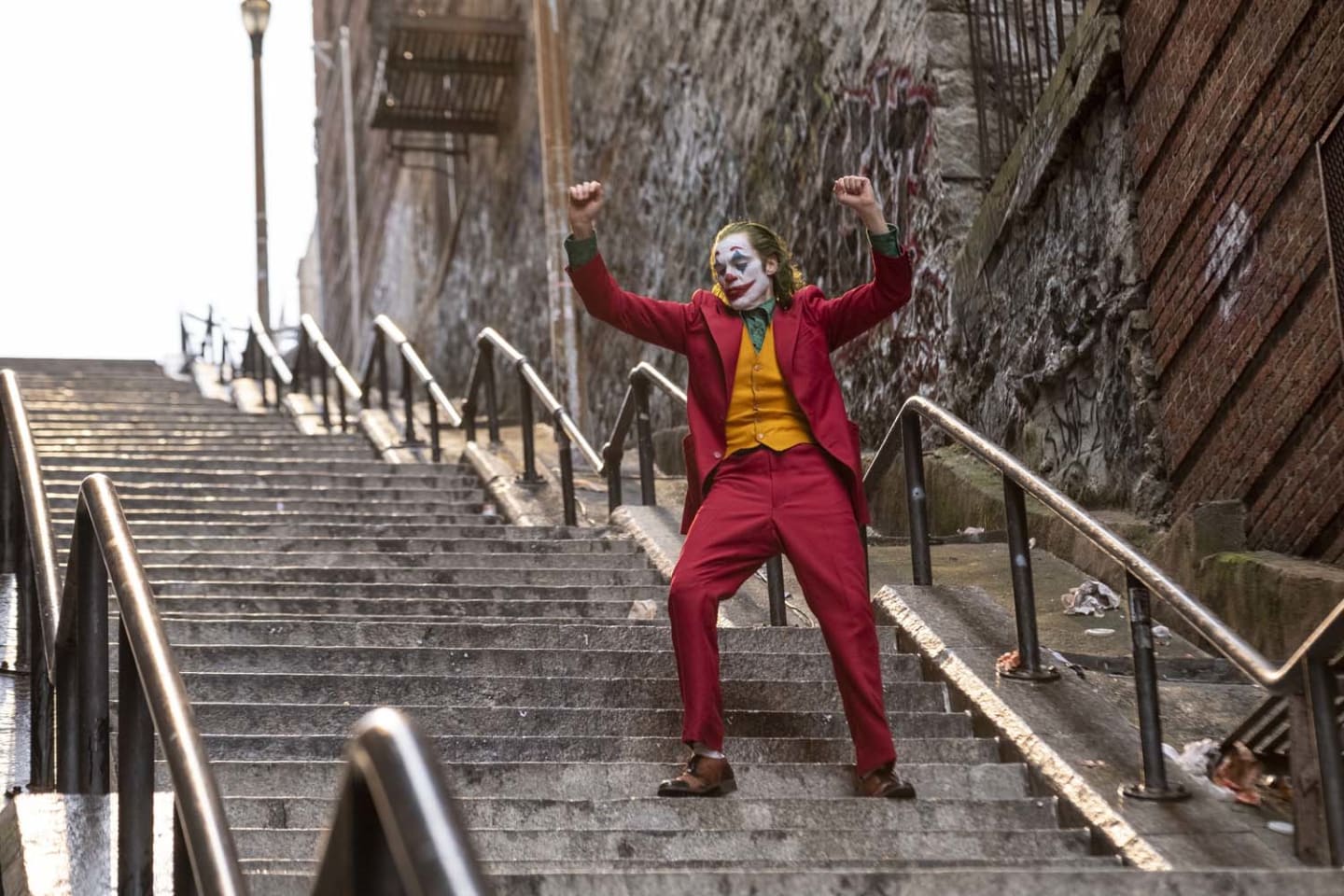We’re all familiar with the Joker. Immortalized in film and television by performers like Cesar Romero, Mark Hamill, Jack Nicholson, and Heath Ledger, the character is famously without origin. An unreliable narrator, he has said of himself, “If I’m going to have a past, I prefer it to be multiple choice.” He is violence and chaos incarnate. Which is why it was controversial when The Hangover filmmaker Todd Phillips was announced as the director of an Elseworlds-style Joker one-off film starring Joaquin Phoenix. His idea, after all, was to give the Joker a sympathetic origin story, one that many fans thought he didn’t need.
In this iteration, Phoenix plays Arthur Fleck, a down-on-his-luck nobody with aspirations of stand-up comedy. Arthur works as a clown for hire for special events, businesses, and even pediatric hospital visits. He suffers from a condition that makes him laugh uncontrollably when he’s stressed, uncomfortable, angry, or sad, giving him the signature manic chortle. He cares for his mother, Penny (Frances Conroy), and largely keeps to himself. That is until he gets pushed too far.
Joker’s comic book philosophy is that “all it takes is one bad day” to get to his level of violent, chaotic insanity. So does Phillips manage to bring the Joker to life through Phoenix’s Arthur Fleck? And what makes this film worth paying attention to? We have three reasons that you’ll definitely want to consider.
1. Joaquin Phoenix’s Rendition Of The Joker Is Completely Raw

It’s often hard to pick a favorite iteration of the Joker. Jack Nicholson’s Jack Napier in 1989 is a classic and became the ultimate standard against which all other performances would be measured. Mark Hamill’s version of the Joker would become the single most iconic vocal performance of the character, as yet to be dethroned. And then Heath Ledger changed the game completely, bringing to life the “agent of chaos” mythos with multiple possible origin stories and zero motivation other than to watch the world burn.
Now we have Arthur Fleck, a Joker with a clear, defined origin that positions him as a tragic hero and victim of circumstance. His motivations are similarly defined, against type for the character as we know him. And while this may not be the Joker we’ve come to know and fear, Phillips’ character and Phoenix’s performance position this version as an interesting Elseworld option where we know where he came from and why he does the things he does. Phoenix’s physicality is excellent, contorting and manipulating his frail frame as necessary to make anyone in the theatre uncomfortable. His uncontrollable laughing is there to make us wince, and wince we do. Everything about him is deliberately cringe-worthy until he has that one bad day and becomes what we always knew he’d become.
2. The Cinematography And Score Are Attention-Grabbing

Edited by Jeff Groth (Religulous) with cinematography by Lawrence Sher (Garden State, The Hangover), the film looks great. It’s the dark, seedy version of Gotham we’ve come to know. The film lingers a little too long on Arthur when he has his laughing fits, sometimes for over a minute of uncut time. This, however, seems to be the point of this iteration – make you watch every agonizing second of his downward spiral into chaos.
The score by Hildur Guðnadóttir (Arrival, The Revenant) brings a lot of the dark mood we’ve come to associate with Joker to the screen. In actual fact, the score was predominantly written before they had even started shooting, influencing the mood and direction of the film. Everything’s accented by certain popular song choices, some of which make sense and others feel comically off-beat. “The Hey Song” by Gary Glitter, for instance, feels a little out of place, but will definitely grab your attention.
3. The Conversation About It Is As Important As The Movie Itself

(WARNING: This section contains mild spoilers.)
This is the most important part of Joker and the one that’s going to draw the most ire from Joker stans and people we’ve actively come to fear in society: For better or worse, this film positions the Joker as a tragic hero. We’re never made to feel like he’s a bad person or that what he’s doing is wrong. Oh, sure, we know logically he’s a villain, but the bulk of sympathy is almost always with the protagonist; such is the case here. There is no moral backbone to the film, which sets Joker up as a hero for the people. What’s more, it positions the people, the ordinary citizens of Gotham, as Joker stans of the highest order. So much so, in fact, that they riot in his name – or, rather, in his image. Phillips has positioned Joker’s deranged everyman as a threat that’s justified because they’re fighting against the oppressive powers of the wealthy elite who run the government.
Yes, they go there.
And while this would be perfectly fine to watch at virtually any other point in history, it’s worth asking whether or not now is the time for a film like this. Joker is a dangerous character at the best of times, but he’s infinitely worse when you give him a sympathetic backstory establishing him as a hero of the people. He was done wrong by all the women in his life and bullied relentlessly by everyone else, and finally snapped, taking justice into his own hands with a gun. It’s worth it to see the film if only to stay present in the discourse around it, one that will likely continue to be contentious and heated moving forward. Whether Todd Phillips likes it or not, he’s created a politically polarizing film that simply cannot exist in a vacuum. Arthur Fleck is the byproduct of our current climate, and he reflects it perfectly. It might not be a necessary film, but it is certainly a relevant one, and maybe that alone is enough of a reason that you absolutely must see it.
















